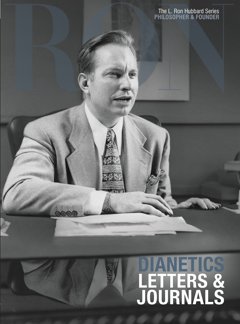Some Known Details About Dianetics
Wiki Article
The Single Strategy To Use For Dianetics
Table of ContentsFacts About Dianetics RevealedThe Buzz on DianeticsWhat Does Dianetics Mean?Not known Details About Dianetics
I couldn't ever not wish to obtain anything that enters your mind for you- if it was or else, I wouldn't be sitting here with you, doing this. I not just might never have a problem, or not want to listen to something that comes to mind for you, yet I'm entirely anxious to understand every concept, every thought, every photo or feeling that emerges or shows up for you- don't ever before assume otherwise, and if somehow you do, please simply allow me recognize! Occasionally, you may have an idea, and photo, concept or case pop up that does not seem to answer the question, or relate to it, yet however, always do inform me concerning it, and as we continue, the importance will arise for you.This is integral in the basis of processing, and the topic of this conversation: the standard functions of the therapist and the client: The fundamental role of the therapist is, in contrast to "basic training", not to manage, which means to apply and/or inhibit, but to rather work from the basis of EMPOWERING THE CLIENT.

Facts About Dianetics Uncovered
John Mcmasters shared this basic truth incredibly well in one of his talks on Power processing, where he clarifies just how he was asked what this "special propensity" was that he had for providing such terrific sessions; he needed to think of that for a moment, and found that it was what he had not been doing, in addition to what he was doing: he had not been evaluating, judging, computing, or actually, generating any thoughts, not to mention verbal expressions, after offering the command and while waiting for the PC to complete their response to their contentment; he was, merely and just, existing with the computer, and totally interested.The function of the therapist, demonstrated; that was his "unique propensity". I have actually had my own experience which instructed me this well, really early in the game. In 1982, having actually lately completed my training and teaching fellowship on New Era Dianetics, I was running this on a PC, and there was a factor in the session where (being a little bit damp behind the ears not yet having many hours under my belt as a specialist auditor) the computer seemed to be "taking as well lengthy" to express anything vocally after I gave him a command.
This secret transformed out to be the most beneficial payment that John ever before made to the subject of treatment or bookkeeping (Dianetics). In my modest point of view, it is the best payment that any individual has ever made to these subjectsthe application is completely non-judgemental, non-evaluative, and without any kind of suggestion, recommendations or opinion.no preconceived program for individuals, or 'degrees' that they should do
In Scientology we prided ourselves on not examining for individuals. All that truly indicated was that the auditor did not Vocally examine for the PC in session.
The Buzz on Dianetics

check that Any individual who had actually ever before seen John audit might not help yet observe a distinct quality in his auditing."The customer's standard function is to be there with the objective of moving in the direction of their spiritual objectives, and to easily and fully express and experience whatever manifests for them in responding to the inquiries and implementing the guidelines in the processing.
This is something to procedure as needed. Likewise, individuals often have previous experience and/or indoctrination in auditing/processing which, in some means, and to some levels, in fact deceives them right into attitudes, ideas and behavior patterns that avoid the complete understanding of these roles, and so they will certainly tend to prevent the expressing of what comes to mind, as in the instances provided above - Dianetics. * The initial, and possibly foremost examples of mis-indoctrination causing much less than entirely smooth and reliable sessions, can be located in particular aspects of the training routines, or "TR's":"TR's" are frequently a person's very first, or at least early, experience in Scientology, and while I will go on to describe what I see as the imperfections in principle and technique, click for source nevertheless, tend to be significantly restorative, done as they are given (Hubbard urges that "TR's are not processing, they are training", yet factually, they are both handling AND training)
Alan Walter made similar observations, and improved these with his "Presence Processes". There is no "failing", and no rejection of the truth of this being processing. The focus, as it needs to be, gets on experiencing the other individual's existence. All the symptoms which obtain a "fail" in doing "TR-0" are merely the being's initiatives to withstand the other individual's existence, and rather than being bothered and nagged with "Flunk", which enforces "failing!" on the being, one merely requires to be urged to "stick their feet in the water a little deeper", to significantly refurbish their ability and readiness to completely share and experience "being here", or "presence", with others.
Our Dianetics Statements

Report this wiki page